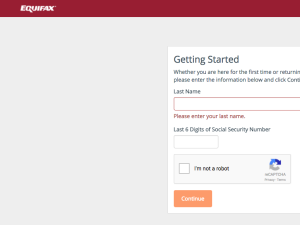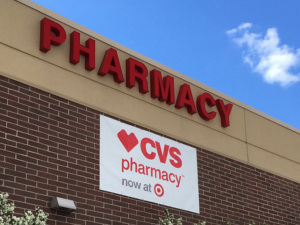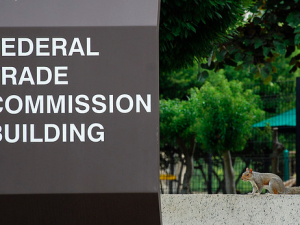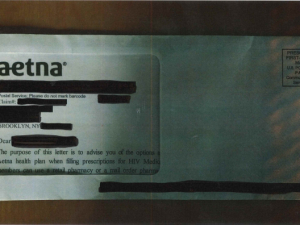The federal government needs antivirus and malware protection at least as much as any other large organization, if not more. But now, after first stopping new purchases, and then asking private business to cut ties, the feds are officially blocking any government use of Kaspersky Lab products, citing security concerns over the company’s reported ties to the Kremlin. [More]
Data & Privacy

4 Things To Remember To Avoid Getting Scammed In Wake Of Equifax Breach
As everyone now knows, 143 million Americans had their personal data compromised during a two-month-long data breach at credit reporting agency Equifax earlier this year. Authorities are now reminding consumers to watch out for bad actors looking to profit from everyone’s worries about their newfound vulnerability. [More]

Don’t Take Equifax Up On Its Credit Monitoring Offer
As anyone able to tear themselves away from hurricane bulletins last week knows, credit reporting bureau Equifax shared the news that the personal information of 143 million Americans was compromised earlier this year. Yet while plenty of companies, including Equifax itself, are happy to give or sell you credit monitoring services after such a massive breach, that doesn’t mean you should take them up on it. [More]

Best Buy Pulls Controversial Kaspersky Security Products
In the modern era, it’s always worthwhile to consider how to protect your systems from unwanted, malicious actors. Kaspersky Labs’ software has been a popular option for doing just that for close to two decades now — but after increasing scrutiny of their founder’s potential ties to the Kremlin, one major retailer has decided to stop selling their security suite. [More]

Equifax Already Being Sued Over Massive Breach; Company Criticized For Amateurish Response To Theft
Within hours of Equifax — one of the nation’s three major credit bureaus — confirming that the records of some 143 million people had been compromised in a data breach, the company now faces a lawsuit accusing it of failing to protect its stockpile of sensitive consumer information. Meanwhile, some critics are saying that Equifax’s response to the breach may be causing more harm than good. [More]

Equifax Announces Data Breach Affecting 143 Million Customers
Credit reporting agencies have access to basically all of our most sensitive financial information, and we pretty much all have our records collected and collated by them whether we want to or not. So that makes it a particularly big problem when one of the big three credit agencies in the country has to announce a data breach affecting all its customers, because that basically means all of us… and this one is bad. [More]

Facebook, Census Bureau Disagree About U.S. Population
Big data isn’t an entirely new concept: We have an entire division of the U.S. government dedicated to quantifying our nation’s population, and the Census Bureau has been doing so in its current form since 1902. The scope, quantity, and granularity of the data has changed, though, and Facebook in particular specializes now in knowing pretty much everything about everyone. But someone is clearly wrong, because the two have population estimates that just don’t match. [More]

Lenovo Will Pay $3.5 Million To States For Privacy-Invading Ad Software
Only hours after Lenovo got off with what amounted to a warning and a promise to not do illegal stuff going forward, the tech company has agreed to pay a total of $3.5 million to a coalition of 32 states to settle allegations that Lenovo knowingly sold laptops that came with ad-injection software that put all of their online data at risk. [More]

Lenovo Gets Slap On Wrist From Feds Over Pre-Installed Ad Software With Gaping Security Hole
Remember that time that Lenovo sold all those laptops with crappy ad-injection software built in, leaving users at risk for both bottom-of-the-barrel advertising and cyber attacks? Today, the tech company settled a complaint with the Federal Trade Commission, promising not to do this all again and not paying a penalty for its alleged transgressions. [More]

Verizon Unable To Shake Off Lawsuits Over Yahoo Data Breach
There’s some bad legal news for Verizon, new owner of the internet services and content portions of Yahoo. A federal judge in San Jose denied Verizon’s motion to dismiss lawsuits from Yahoo users whose accounts were part of a series of breaches that affected an unprecedented number of users. [More]

Gambling Services Use Big Data To Target Recovering Gamblers, Low-Income Families
We’re becoming inured to seeing online ads that are targeted to our locations, our browsing histories, and maybe even our offline shopping behavior, but is there a difference between advertising home theater systems to someone who has been searching for 80″ TVs and advertising online gambling services to people you’ve identified as having problems with gambling? [More]

CVS Accused Of Revealing HIV Status Of 4,000 Ohio Customers
Days after insurance giant Aenta was accused of revealing the HIV medication use of 12,000 customers, CVS has found itself in a similar boat: The pharmacy giant allegedly sent letters to customers that inadvertently revealed their HIV status. [More]

465K People Need A Pacemaker Security Update To Protect Their Hearts From Hacking
If you need more evidence that we are living in an increasingly internet-connected world, look no further than a recent software update aimed at making sure 465,000 people with pacemakers don’t have hearts that are vulnerable to hackers. [More]

TaxSlayer Settles FTC Charges That Lax Security Led To Identity Theft
Sure, it might be convenient to do your own income tax preparation online, but it could be risky: Scammers all over the globe have exploited these risks, slurping billions of dollars’ worth of ill-gotten tax refunds into their bank accounts. In order to prevent even more of this, federal regulators have settled charges TaxSlayer violated federal rules on financial privacy and security. [More]

Amazon Really Wants Echo Devices In The Hands (And Dorm Rooms) Of College Students
If you want future developers of technology to create new things for your product, try giving it to engineering students for free. Amazon is experimenting with that at one college, giving away an Echo Dot (list price $49.99) to every student in a new dorm at Arizona State University. [More]

Uber Finally Lets You Opt Out Of Having Your Location Tracked After Your Ride Is Over
Late last year, Uber made a change to its app that let it track customers after their rides had ended. Many troubled months later, the company is finally walking back that tweak, and will once again let customers have more control over when their locations are used. [More]

Aetna Accused Of Revealing HIV Medication Use Of 12,000 Customers
Something as minor as an envelope window has landed one of the country’s largest insurance companies in legal hot water. Aetna is being sued for sending out thousands of letters that inadvertently revealed that the recipient has taken medication for the treatment or prevention of HIV. [More]

Aetna Letters Publicly Revealed Patients’ HIV Status
Health insurance giant Aetna recently alerted thousands of policyholders of a change to their pharmacy benefits. Problem is, Aetna sent those letters out in envelopes that revealed that the recipient is HIV positive. [More]


